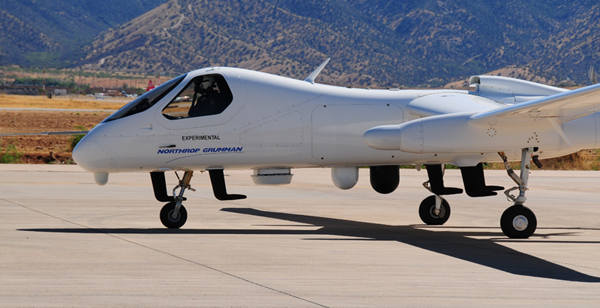At the U.S. Joint Forces Command’s Empire Challenge 2011, Northrop Grumman Corporation successfully demonstrated the ability of its STARLite radar to provide Ground Moving Target Indicator (GMTI) data and Synthetic Aperture Radar (SAR) imagery to ground commanders in real time.
Flying on the company’s Firebird optionally manned aircraft, STARLite demonstrated its Dismount Moving Target Indicator (DMTI) capability from a moving platform for the first time in a joint exercise.
STARLite also demonstrated its ability to cue other sensors on an aircraft and to function as part of a networked system using standard protocols. Empire Challenge marked the first time STARLite transmitted information through a Tactical Common Data Link from an unmanned aircraft under operational conditions.
“Our experience at Empire Challenge proved again that STARLite can give commanders the information they need to make tactical decisions in real time,” said John Jadik, vice president of weapons and sensors for Northrop Grumman’s Land and Self Protection Systems Division. “STARLite is the only production radar in its class that offers warfighters this combination of SAR, GMTI and DMTI capability.”
During Empire Challenge, two different STARLite configurations were demonstrated. The baseline system plus an extended range antenna that will double the range capability of the radar took part in the exercise.
Northrop Grumman’s AN/ZPY-1 STARLite Small Tactical Radar — Lightweight is the U.S. Army program of record for the MQ-1C Gray Eagle Unmanned Aircraft System. Each STARLite radar comes equipped with a complete software package for interfacing with U.S. Army systems, enabling easy operator control of the SAR maps and ground moving target detection features on standard Army maps. The AN/ZPY-1 leverages Northrop Grumman’s experience acquired from the company’s proven Tactical Endurance Synthetic Aperture Radar and the Tactical Unmanned Aerial Vehicle Radar programmes.
Source: Press Release

